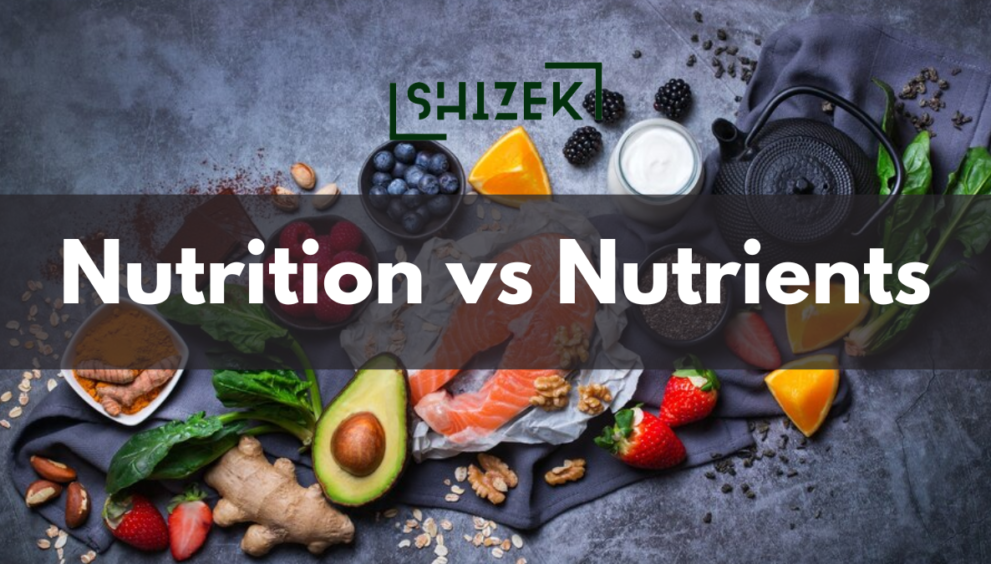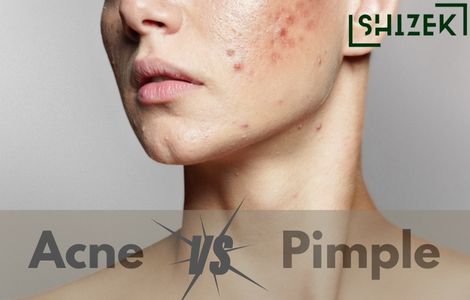Difference Between Nutrition and Nutrients

Ever wondered why that giant chocolate chip cookie sounds amazing, but you know a salad is the “better” choice? It all boils down to nutrition and nutrients! These two terms get tossed around a lot, but what’s the real difference?
Think of it like this: your car needs fuel (nutrition) to run properly. That fuel comes in different forms (nutrients) like gasoline, oil, and coolant. Each plays a specific role in keeping your car going. The same goes for your body!
In this article, we will explore the key difference between nutrition and nutrients based on the different sets of parameters.
Table of Contents
- Difference Between Nutrition and Nutrients
- What is Nutrition?
- What is Nutrients?
- Key Difference Between Nutrition and Nutrients
- FAQs
What is the Difference Between Nutrition and Nutrients?
| Parameter | Nutrition | Nutrients |
| Definition | The process of getting or delivering food required for development and health | Any substance that helps in the growth and development of the body |
| Focus | Overall health and well-being | Specific components of food |
| Scope | Encompasses all aspects of food and health | Limited to the individual components of food |
| Goal | To maintain optimal health and prevent disease | To provide the body with essential substances for function and growth |
| Components | Includes proteins, fats, carbohydrates, vitamins, water, and fibers | Comprise macronutrients (fats, proteins, carbohydrates) and micronutrients (vitamins, minerals) |
| Importance | Essential for growth, maintenance, and energy | Essential for regulating body functions and providing energy |
| Study Area | Involves the study of food, nutrients, and their effects on health | Involves the compounds in food that provide energy and facilitate repair and growth |
| Interdisciplinary Nature | Involves physiology, biochemistry, psychology, anthropology, economics, and political science | Involves fields like physiology, biochemistry, molecular biology, psychology, and anthropology |
| Impact | Aims to promote optimal health and reduce the risk of chronic diseases | Aims to provide energy, support growth, and maintain health |
| Examples | Nutrition is like the car’s engine, providing the right fuel for the body | Nutrients are the building blocks of nutrition, like different types of fuel for a car |
What is Nutrition?
Nutrition refers to the process by which the body uses food for energy, growth, and maintenance. It involves the ingestion, digestion, absorption, and utilization of nutrients from the food we eat. Nutrition is a broader concept that encompasses the food we eat and how our bodies respond to it. It’s about understanding how different foods affect our health and well-being.
Eating a balanced diet with plenty of fruits, vegetables, whole grains, lean proteins, and healthy fats is key to good nutrition. This provides your body with the essential building blocks it needs to function at its best.
What are Nutrients?
Nutrients are the substances found in food that provide nourishment to the body. They can be divided into two main categories: macronutrients and micronutrients.
Macronutrients
- Carbohydrates: Provide energy and are found in foods like bread, pasta, rice, fruits, and vegetables.
- Proteins: Essential for growth, repair, and maintenance of body tissues, found in meat, fish, eggs, legumes, and dairy products.
- Fats: Provide energy, insulation, and protection for organs found in oils, nuts, seeds, and fatty foods.
Micronutrients
- Vitamins: Essential for various bodily functions, such as metabolism, immune function, and cell growth, found in a variety of plant and animal-based foods.
- Minerals: Necessary for processes like bone development, fluid balance, and enzyme function, found in foods like dairy, meat, grains, and vegetables.
Example: Vitamin C is a nutrient found in citrus fruits like oranges, which helps support the immune system.
Nutrients are the building blocks of nutrition. They are the essential components of food that our bodies need to function properly.
Key Difference Between Nutrition and Nutrients
- Nutrition is the process, while nutrients are the components.
- Nutrition involves the intake, digestion, absorption, and utilization of nutrients.
- Nutrients are the specific substances found in food that provide nourishment and support bodily functions.
- Proper nutrition requires a balanced intake of various nutrients from different food sources.
- Nutrients can be classified as macronutrients (carbohydrates, proteins, and fats) or micronutrients (vitamins and minerals).
FAQs
- Are carbs bad?
Carbohydrates can provide essential nutrients like fiber, vitamins, and minerals. It’s recommended to focus on consuming nutrient-dense carbs like fruits, vegetables, whole grains, beans, and legumes. - What is trans-fat and why is it bad?
Trans-fats are manmade fats that are chemically altered for longer shelf life in processed foods. They are harmful as our bodies struggle to process them, leading to potential health risks like heart disease. Look for “hydrogenated” or “partially hydrogenated oils” in ingredient lists to identify trans-fats. - Should I avoid eating before bedtime?
While leaving a couple of hours between eating and bedtime can aid in better sleep, strict rules are not necessary. It’s more about listening to your body and ensuring a balanced diet throughout the day. - What are the best nutritious foods?
Some top nutritious foods include salmon, kale, seaweed, garlic, shellfish, potatoes, livers, sardines, blueberries, dark chocolates, and egg yolks. - Why is nutrition essential for living organisms?
Nutrition is crucial for leading a healthy life, reducing disease risks, and improving overall health by providing energy to cells for cellular activities. - Does nutrient timing matter?
Nutrient timing involves eating at specific times for desired outcomes like muscle growth or fat loss. While it has been used by athletes and bodybuilders, adopting a balanced diet and lifestyle change is key for long-term health. - What is the nutritional intake of adult humans?
Adult humans require specific daily nutritional values like energy, total fat, saturates, carbohydrates, total sugars, protein, and salt to maintain health and well-being. - What are the signs of inadequate nutrition?
Signs of inadequate nutrition include unexplained fatigue, brittle hair, spoon-shaped nails, mouth issues, diarrhea, irritability, and lack of appetite. It is recommended that you consult a nutritionist for a proper diet. - Is it important to eat real, nutritious foods over supplements?
Real, nutritious foods provide a wide variety of essential nutrients that supplements cannot match. While some supplements can be beneficial, they should not replace a healthy diet. - Are diets effective for long-term weight loss?
Diets may offer short-term results, but long-term success comes from adopting a healthy lifestyle. Yo-yo dieting, where weight is regained after a diet, is common, emphasizing the need for sustainable lifestyle changes.























































































































